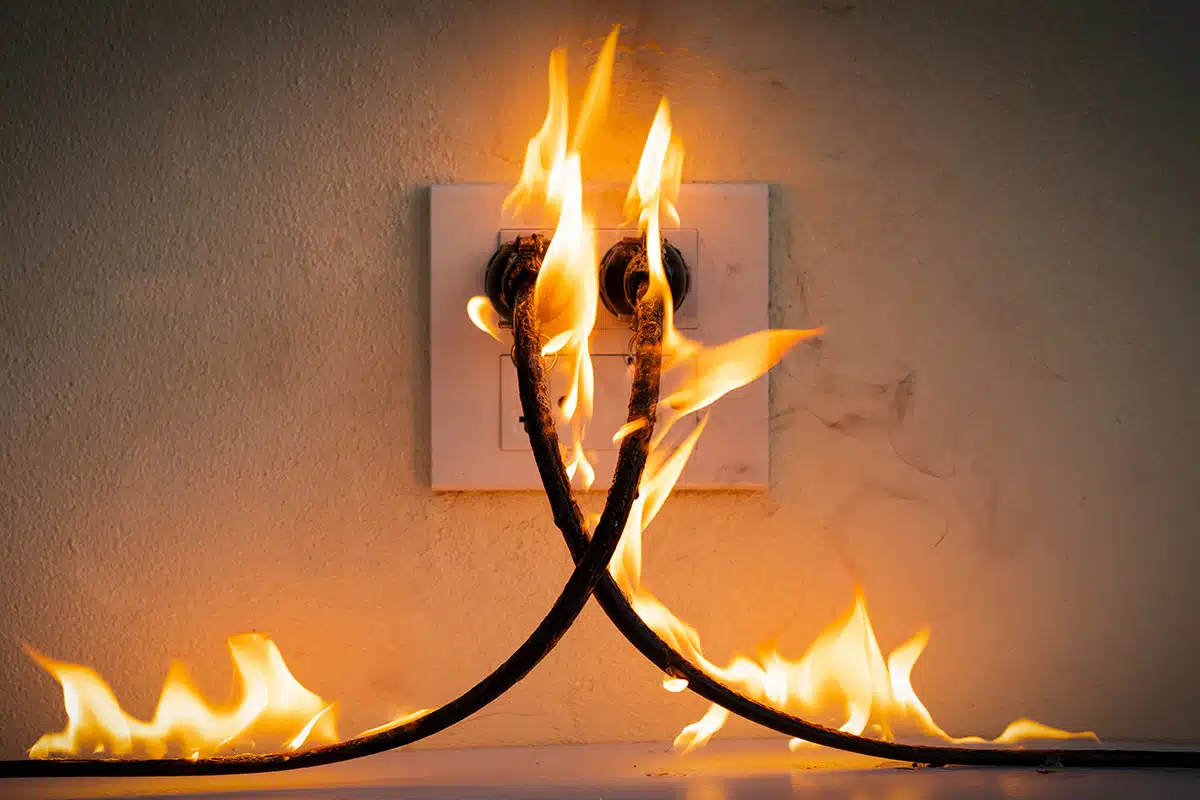You know you’re in trouble when turning on the heater causes the lights to flicker, there’s a faint burning smell near the TV cabinet, and whenever you run the dishwasher and tumble dryer at the same time, the lights go out and you have to reset the circuit breaker. The thing is, you’ve been living with these issues for so long that you’ve become used to them – they’ve become ‘just one of those things’.
One of our regular customers dismissed similar warning signs for months, thinking they were just part of living in an older home. When they finally contacted us, our inspection revealed dangerously overloaded circuits that could have resulted in a serious electrical fire.
The red flags your wiring is waving
“We don’t think people understand how important it is to pay attention to these warning signs,” says Chris French, owner of BW Henderson. “Tripping fuses, flickering lights, buzzing sounds from outlets, and discoloured power points are all telling you something’s not right.”
When your circuit breaker frequently trips, don’t treat it as an inconvenience. Each time it trips, it detects excess electricity flow that could overheat wires and cause a fire. Rather than resetting it repeatedly, treat it as an urgent indicator that your electrical system needs professional attention.
Flickering lights – particularly when appliances are switched on – indicate your electrical system is struggling under demand. It’s especially common in older homes where original wiring wasn’t designed for multiple modern appliances.
Faint buzzing or crackling from switches or outlets could indicate loose connections allowing electricity to arc across gaps. Even these faint sounds shouldn’t be ignored.
Power point danger signals
Power points should never feel warm or show discolouration. That brownish tint or plastic warping is evidence of excessive heat build-up – a primary precursor to electrical fires.
We recently had an urgent callout to a home where the family had noticed their lounge power point getting hot whenever they used their heat pump. “We pulled that outlet apart and found the connections had been arcing for weeks,” recalls Nick from BW Henderson. “The wiring was completely fried, and the wall cavity behind it was charred black. Another few days and they would have had a house fire.”
Electrical shocks, no matter how minor, aren’t normal. That small zap indicates potential grounding issues – electricity taking paths it shouldn’t, and sometimes through you!
Yesterday’s wiring, today’s demands
New Zealand’s old villas and homes built up until the 90s, are at serious risk of electrical fires. Why? Because their wiring is simply not designed for modern electrical loads.
“The biggest thing is the amount of load people are putting on electrical systems that were never designed for it,” Chris explains. “You should have a dedicated power point for a heater, not put it on a multi-box, because this can cause a fire.”
Today’s homes contain dozens of devices that didn’t exist 20 years ago. Combined with traditional appliances, these put major demands on electrical systems. Winter compounds this with increased heating and hot water usage.
Take control of electrical safety
Follow the ‘one socket, one appliance’ rule. Daisy-chaining devices through double adapters dramatically increases overloading risk, especially with heat-generating appliances.
If your home dates before the 1990s, your electrical system may require upgrading. Regular professional inspections identify potential issues before they become dangerous.
Smart monitoring systems provide enhanced safety. We recently installed one for a customer whose garage workshop kept tripping the main switch. The system now alerts them to any electrical irregularities, and last month it detected a fault in their workshop before it became a safety issue.
Don’t wait for that spark, buzz, or flicker
Don’t wait for warning signs to become something serious. When you contact BW Henderson, you speak directly with a qualified electrician who can assess your situation and coordinate an appropriate response.
Give us a call – one of our experienced electricians can advise and book a time to come to you.


